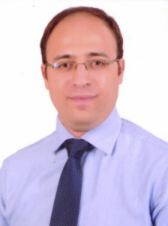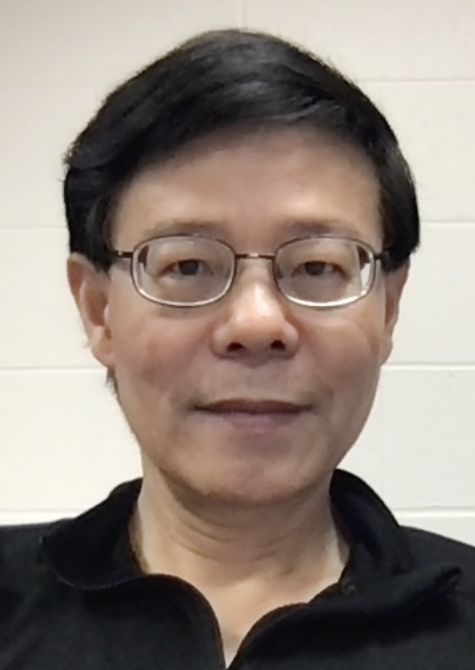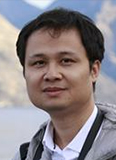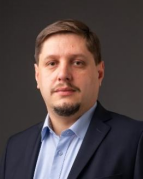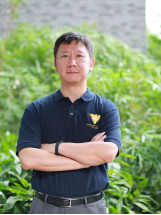
(Updating)
Keynote Speakers
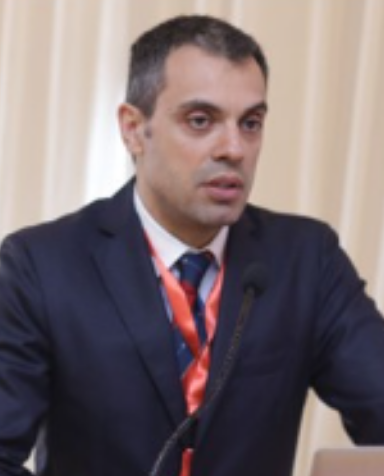
Prof. Pier Paolo Piccaluga
School of Medicine, Bologna University, Italy
PI for Genomic and Precision Medicine Research Group
Prof. Pier Paolo Piccaluga, MD, Ph.D., is currently an Associate Professor of Pathology at the Department of Medical and Surgical Sciences, Bologna University School of Medicine—Institute of Hematology and Medical Oncology, and an executive physician at The Biobank of Research, IRCCS Azienda Opedaliera-Universitaria di Bologna. In 2018, he was appointed to teaching posts at the Queen Mary University of London and Jomo Kenyatta University of Agriculture and Technology, Nairobi, Kenya. He is the author of several international publications in journals such as Nature Medicine, Journal of Clinical Investigation, Journal of Experimental Medicine, Journal of Clinical Oncology, Blood, Lancet Oncology, and Lancet Infectious Diseases. Prof. Dr. Piccaluga is ranked a Top Italian Scientist (TIS) by VIA-Academy.
Main clinical interests: clinical hematology, hematopathology, and molecular diagnostics; Main research interests: viruses and lymphomagenesis; genomics and metabolomics of hematological malignancies; digital pathology.
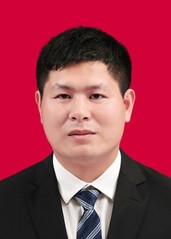
Prof. Dapeng Yan
Fudan University, China
Professor Yan Dapeng is a researcher in the Department of Immunology, School of Basic Medical Sciences, Fudan University, a doctoral supervisor, and a special professor ( Oriental scholar ) in Shanghai University. He was selected as one of the top young talents of the National " Ten Thousand Talents Plan, " Shanghai 's outstanding academic leaders, Oriental scholars, Pujiang talents, etc. He has devoted himself to the study of the molecular mechanism of pathogen immune escape. His research projects include the National Key Research and Development Program of the Ministry of Science and Technology (2 key projects), the National Natural Funding Committee of China (NNFC), Shanghai University Distinguished Professors, and the Pujiang Talent Fund, etc. He is also a member of the National Academy of Sciences of China.
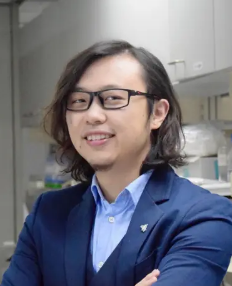
Prof. Wei Zuo
Tongji University, China
Prof. Wei Zuo's team is deeply engaged in research on regenerative repair and functional enhancement of vital organs such as the lungs and kidneys using adult stem cells. We propose an innovative theory that organ regeneration recapitulates the developmental process. Their groundbreaking R-Clone technology enables the isolation and amplification of drug-grade progenitor cells. They are responsible for three clinical research registration projects related to stem cells under the National Health Commission of the people’s republic of China. Notably, they led the world’s first clinical trial of lung progenitor cell transplantation. The research findings from his team have been published in prestigious journals such as Nature, Science Translational Medicine, AJRCCM, and EMBO Mol Med. One of their singleauthored papers has been cited over 1700 times. Their globally pioneering drug, REGEND001, derived from lung progenitor cells, has received approval from the National Medical Products Administration for Phase II clinical trials. To date, they have successfully completed lung regeneration treatments for hundreds of patients with damaged lungs. Their achievements were recognized as one of the top ten advances in Chinese medical biotechnology in 2018 and were included in the three major global advancements published by the European Respiratory Society (ERS) in 2023.
Personally, He was honored as one of China’s top ten innovation pioneers in 2018, selected as one of the Top 5 in China’s “Scientist Entrepreneurship Pioneers” in 2021, and recognized as the “The Role Models of New Force in Life Science” by the Shulan Foundation in 2023.

Prof. Liansheng Wang
Xiamen University, China
Liansheng Wang is currently a professor at the School of Information at Xiamen University, a dual-appointed professor at the Department of Gastroenterology at the School of Medicine, a doctoral supervisor, the deputy director of the Digital Fujian Health and Medical Big Data Research Institute, and the deputy leader of the AI group of the Radiology Branch of the Fujian Medical Association, Vice Chairman of MICS. He has been engaged in medical image processing research for a long time. He has hosted and participated in a number of scientific research projects, including the National Natural Science Foundation of China Instrument Project, the Ministry of Science and Technology’s Scientific and Technological Innovation 2030, the National Key R&D Project, the National Natural Science Foundation of China and Youth Projects, etc. His publications include Nature Machine Intelligence, Nature Communications, Cell Patterns, TMI, MedIA, CVPR/AAAI, and other related research papers. He has won the Tencent Rhinoceros Research Award, the CSPE Young Investigator Award, the second prize of the Fujian Province Science and Technology Progress Award, and the 2023 Xiamen University Field Award. The first prize of the Zhaowu Interdisciplinary Award led the team to win the championship in international medical imaging competitions 11 times.
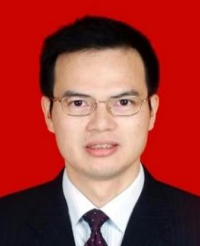
Prof. Zhiyong Luo
Central South University, China
Dr. Zhiyong Luo is a professor and doctoral supervisor in the School of Life Sciences at Central South University (CSU). Dr. Luo is the director of the Cross-Center for New Drug Discovery at Central South University and the leader of the "Major Disease Target Discovery and New Drug Development" in Biology at Central South University. His research interests include the discovery of new drugs for the treatment of tumors, metabolic steatohepatitis and fibrosis, psoriasis, and genetic diseases, as well as the biosynthesis and synthetic biology of rare active ingredients in traditional Chinese medicine. He has presided over 10 top-level and international cooperation projects of the National Natural Science Foundation of China and four key projects of the Hunan Provincial Natural Science Foundation and the Science and Technology Research and Development Program. He has applied for 28 domestic and international invention patents, of which 26 have been authorized, and has published more than 70 papers in Nat Commun and other journals. He has discovered the world's first oncoprotein ASS1 activator-polyketide A derivative, LM-2I, which is an original new drug candidate of anti-tumor class I with a new structure, a new target, and a new mechanism. It was authorized by the national invention patent and published by the international invention patent, which is the key core technology of our own. The research result was published in Nature Communications in April 2021 and has been published in both domestic and international markets. Besides, the research results were published in Nature Communications in April 2021 and have had a significant academic impact at home and abroad. In addition, he also developed ZLM-7, which targets tumor stem cells and angiogenesis, and ZSW, an anti-tumor quinone compound that targets STAT3; discovered NAC72 and MYB transcriptional regulators that transcriptionally activate dammarenediol synthase (DDS), a key enzyme in ginsenoside synthesis; and discovered and developed ginsenoside Rh2 derivatives, which are anti-tumor drugs that regulate the ERα/ERβ-TNFα pathway to induce apoptosis of tumor cells. Rh2 derivatives.
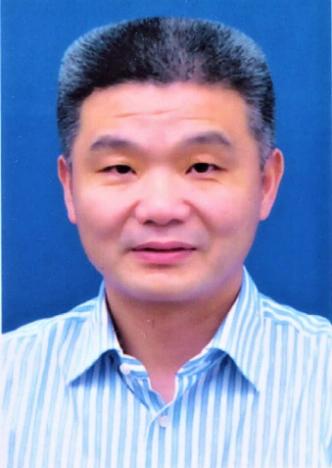
Prof. Gangmin Ning
Zhejiang University, China
Gangmin Ning obtained degree of Bachelor and Master in Biomedical Engineering from Zhejiang University, China, and degree of Dr.-Ing in Biomedical Engineering from Ilmenau University of Technology, Germany. He is currently a Professor in the Department of Biomedical Engineering at Zhejiang University, China. Also he holds positions as a Visiting Professor at Charité Medicine Center, Germany, and Guest Professor at Capital University of Physical Education and Sports, China. He serves as the vice Chairperson of the Microcirculation Society of China and the Deputy Director of the Engineering Research Center for Electronic Medical Records and Intelligent Expert Systems, Ministry of Education, China. He is a Senior Member of IEEE and the Chinese Society of Biomedical Engineering.
His main research areas encompass mathematical models for physiological system, artificial intelligence in medicine, and rehabilitation technologies for elderly. He achieved one first prize and three second prizes of Science and Technology Progress Awards, Zhejiang Province, China.
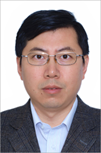
Prof. Jun Guo
Nanjing University of Chinese Medicine
JunGuo is a professor at Nanjing University of Chinese Medicine and the director of Laboratory and equipment management. The research focuses on the physical regulation mechanism of cellular structural tension on high-risk diseases such as ischemic brain edema, Alzheimer's disease, acute respiratory distress syndrome and cancer. The new theories of cell mechanics, such as "cell tension vector analysis", "biological osmotic pressure" and "electromechanical balance of living cells", have been proposed. Using fluorescence resonance energy transfer (FRET) technology, a cell platform for screening traditional Chinese medicine monomers was constructed to reveal the new drug effects of traditional Chinese medicine. From 2013 to 2014, he was a senior visiting scholar at the Center for Macromolecular Research, University of Buffalo, USA. The Angle fluorescence tension detection probe co-created by him won the NIH Cell Research Innovation Challenge Award. He has presided over several general projects of National Natural Science Foundation of China, provincial key Fund and provincial "Six Peak Talents" high-level talent projects. As the first or corresponding author, he has published more than 100 SCI papers in internationally renowned journals. He has applied for 15 PCT patents and Chinese invention patents, and has obtained 11 authorized ones.
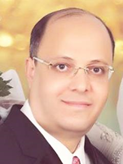
Associate Professor Ahmed El-Hashash
Texas A &M University, America
Prof. Hashash has joined Texas A&M University as an Associate Professor of Biomedicine. He has several studies and publications on the genes and enzymes that control stem cell behavior and regenerative medicine. He has published more than 34 papers in reputed international journals and serves as an editorial board member of repute, in addition to over 17 book chapters. Prof. Hashash has received several international awards and recognitions over the years, including being the nominee for the Kuwait Foundation for the Advancement of Science’s (KFAS) Prize in Applied Medical Sciences and the Manchester University Fellowship Award (UK). In addiction, Prof. El-Hashash acts as a discussion leader at the prestigious Gordon Research Seminar/Conference in the USA and a peer reviewer and international extramural reviewer for the Medical Research Council (MRC) grant applications in London, UK. He is the editor or author of over 10 books on stem cells and regenerative medicine that have been published by the prestigious publishers Elsevier and Springer. Prof. Hashash is currently book series editor at Elsevier Publishers, USA (2019–2028).
Speakers of ICBBE 2023
Prof. Aly El Sheikha, University of Ottawa, Canada |
Prof. Yi-Tao Yu University of Rochester/Medical Center/Department of Biochemistry and Biophysics, USA |
A/Prof. Binh P. Nguyen Victoria University of Wellington, New Zealand |
A. Prof. Oleksiy V. Penkov ZJU-UIUC Institute, Zhejiang University, China |
Prof. Minxue Zheng Suzhou Institute of Biomedical Engineering and Technology (SIBET)/Center for Nucleic Acid Diagnostic Technology |
